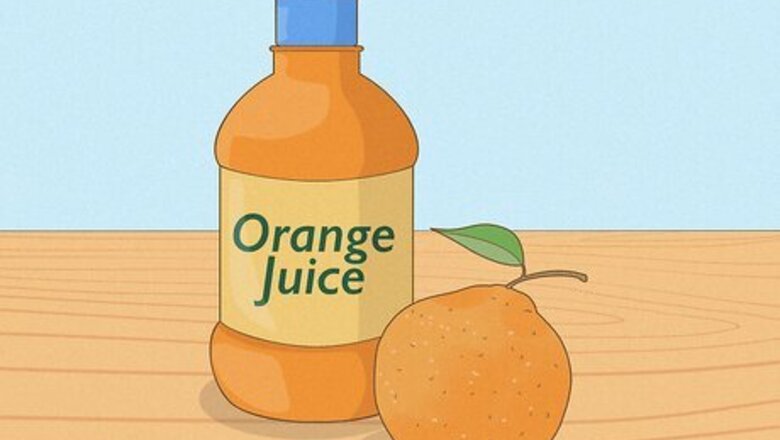
views
Does OJ make you poop?
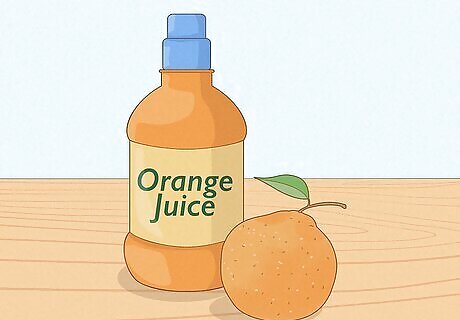
It has its benefits, but it won’t send you running to the bathroom. Orange juice with pulp (chunks of the fruit) is the most fiber-rich variety—according to certain research, a glass of this particular OJ nets you around 5% of your body’s required fiber intake for the day. Within this small amount of fiber is pectin, a type of soluble fiber found in produce. So, orange juice definitely won’t give the immediate urge to poop, but it does offer a little bit of fiber (assuming your juice isn’t pulp-free). There are plenty of other reasons to enjoy orange juice besides its fiber content! OJ, for instance, is a great source of nutrients like vitamin C, potassium, and copper. Oranges also have flavinoids (special chemicals) like naringin (and naringenin, by extension), which are known for their antioxidant and anti-inflammatory qualities.
Foods and Drinks That Make You Poop Fast
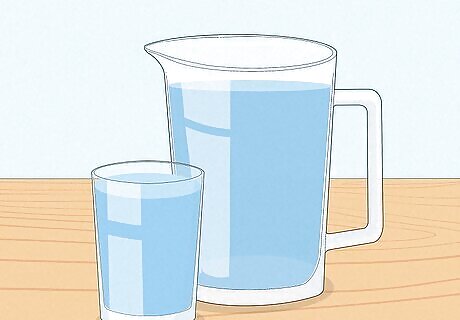
Water Water and fiber go hand-in-hand when it comes to regular bowel movements. In addition to eating and drinking fiber-rich foods, it’s important to drink plenty of water so your stools stay soft and you’re able to have easy, pain-free bowel movements. A person’s daily recommended water intake depends on multiple factors, but aiming for 11.5 cups (2.7 L) as a woman/AFAB individual or 15.5 cups (3.7 cups) as a man/AMAB individual is a good rule of thumb to follow.
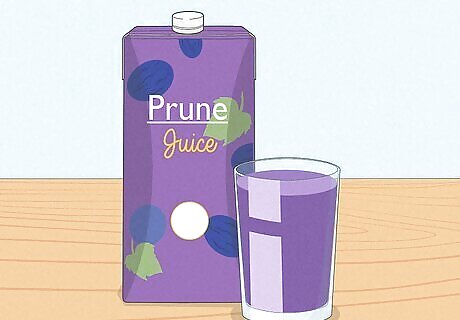
Prune juice Ironically enough, it’s not just fiber that makes prune juice so effective at clearing your bowels—it’s sorbitol, a type of sugar alcohol. Similar to insoluble fiber, sorbitol stays intact throughout the digestive process, so your body wants to get rid of it promptly. Prunes are also a good source of sorbitol, but prune juice might be easier to gulp down quickly if you aren’t a fan of the physical fruit. Mixing prune juice and OJ together might make the drink a little tastier if you aren’t a huge a fan of prune juice.
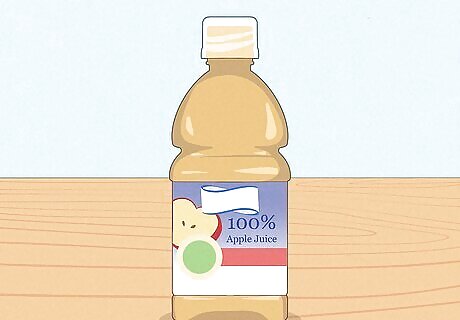
Apple juice Like prune juice, apple juice also has its fair share of sorbitol, though not quite as much. If you (understandably) aren’t a prune juice fan, sip on some apple juice to potentially help speed up your future bowel movements.
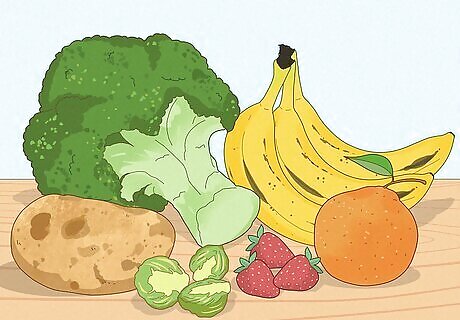
Fruits and vegetables Raw fruits and veggies are excellent sources of soluble and insoluble fiber. Experiment with different types of produce and see which ones you like the best; if certain varieties really strike your fancy, feel free to add them to your diet a little more! High-fiber fruits: Raspberries, pears, apples, bananas, oranges, strawberries High-fiber vegetables: Green peas, broccoli, brussels sprouts, carrots, corn, potato (skin-on), turnip greens
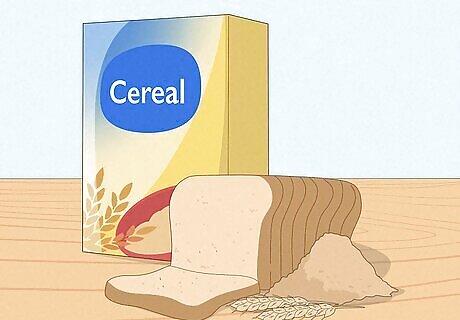
Whole grains Look for whole grain alternatives for some of your favorite carbs, like whole-wheat bread, whole-wheat pasta, or bran-based cereal. Unlike refined grains (like white bread), whole grain products include the entire grain, including the nutrient-rich bran, germ, and endosperm components.
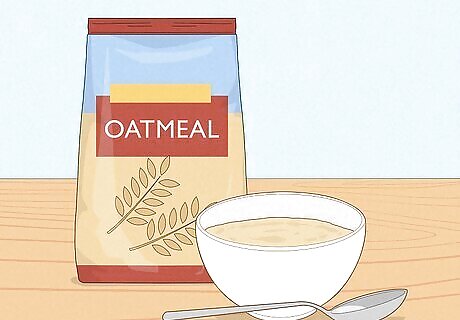
Oatmeal Start your morning with a bowl of oatmeal, or sprinkle some oats in your next smoothie or batch of cookies. Oatmeal is a great source of soluble fiber—plus, it helps you stay full and satisfied for a long time after you eat it. Beta-glucan, the specific type of fiber commonly found in oats, is believed to help reduce your risk of developing long-term health issues like heart disease.
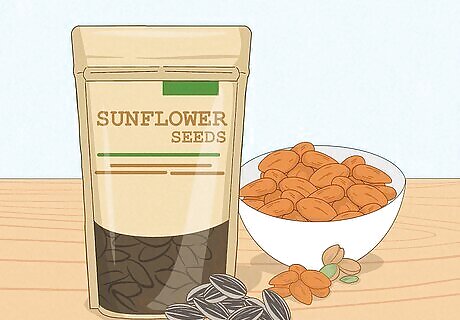
Beans, seeds, and nuts Beans are an excellent source of fiber, and can be a great way to speed up your bowels when you’re feeling stuck. Chia seeds and sunflower seeds are other great fiber sources to consider, as well as nuts like pistachios and almonds. Just keep in mind that beans can really pack a punch to your digestive system lead to some unpleasant gassiness for some people. If beans frequently make you gassy, supplements like Beano can be helpful.
The Science of Fiber
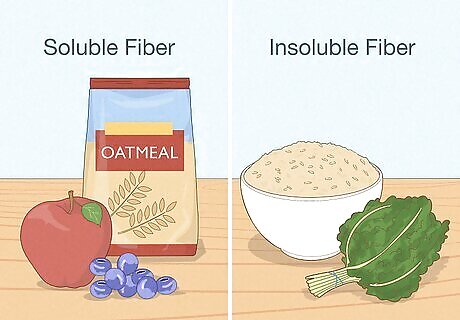
Fiber falls into 2 categories: soluble and insoluble. Soluble fiber breaks down in water, which gives it a gummy-like consistency. When incorporated with your stool, soluble fiber helps soften it up so it passes smoothly. Insoluble fiber, on the other hand, doesn’t break down in water but rather gives a little extra bulk and structure to your stool, which makes it easier to pass. Foods like oatmeal, blueberries, and apples are all great sources of soluble fiber, while whole grain bread products, brown rice, kale, and skin-on fruits are fantastic sources of insoluble fiber. Some foods, like beans and walnuts, are good sources of both fiber types.
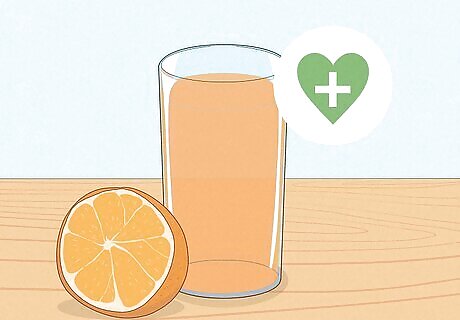
Most juices aren’t high in fiber, but they help you stay hydrated. When fruits are juiced, they hang onto a lot of the great, naturally-occurring nutrients in fruits, like vitamins and minerals. Unfortunately, a lot of the natural fibers in fruits (like oranges) get discarded as the juice is processed and refined. Still, there’s no denying that fruit juice (in addition to water and other fluids) can help you stay hydrated, which is a key element of keeping your stools soft and your bowels regular.



















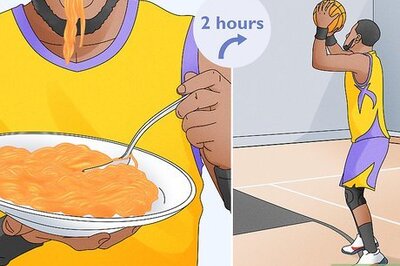
Comments
0 comment